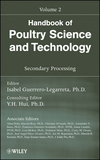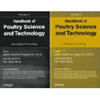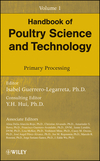AAAP: Poultry health, welfare ‘should not be sacrificed in the name of marketing’
Antibiotic use in poultry should be minimized through carefully planned and well-executed preventive practices, according to a new position statement released by the American Association of Avian Pathologists.
However, the association added, antibiotics should remain “a viable option when appropriate and necessary for the health and well-being of the animal, even when marketing and consumer preference dictate otherwise.”
The new document, “AAAP White Paper on Poultry Welfare and Carful Antibiotic Use,” expressed concerns about the “growing trend” for some food retailers and restaurants to only offer poultry products from flocks raised with no antibiotics.
“This practice may result in situations where farmers are reluctant to allow treatment of flocks in order to maintain their ‘antibiotic free’ status,” the association said.
“Veterinarians need the ability to make the proper treatment plans for animal health and animal welfare, including the use of antibiotics when warranted as part of their professional commitment and ethical obligation,” AAAP added.
Hoping to ease consumer and retailer concerns, AAAP noted that FDA-mandated withdrawal times for antibiotics ensured that no drug residues were present at the time of slaughter.
“This means that poultry meat and eggs are free of antibiotics” even when these medications are used to prevent, control or treat disease, AAAP said.
The association added antibiotics remained “an important tool for poultry veterinarians to protect the health and well-being of flocks and should not be sacrificed in the name of marketing of an antibiotic-free product.”
At the same time, AAAP acknowledged that antibiotic stewardship was “important to the veterinarians, food companies, regulators and other stakeholders who make decisions about sustainable livestock and food production” and said it supported efforts to “research and evaluate new technology and production systems that will eliminate routine use of antibiotics.”
Noting that the effectiveness, dosage and duration of many of antibiotic alternatives “have not been scientifically proven to provide treatment for diseases,” AAAP said it also supported research aimed at measuring their effectiveness.
Earlier this year, AAAP issued another document, “White Paper on the Judicious Use of Drugs Fed to Poultry and the Risks to Human Health.”
The American Association of Avian Pathologists is an international association whose mission is to promote scientific knowledge to enhance the health, well-being, and productivity of poultry to provide safe and abundant food for the world.
Source: AAAP
Looking for a reprint of this article?
From high-res PDFs to custom plaques, order your copy today!







